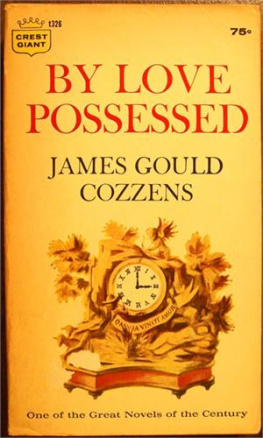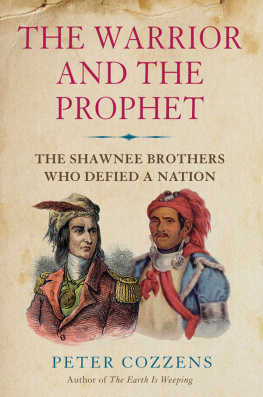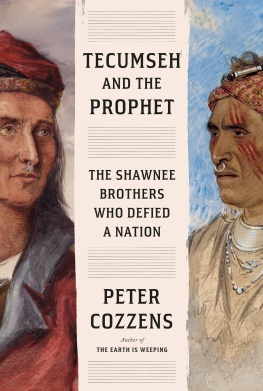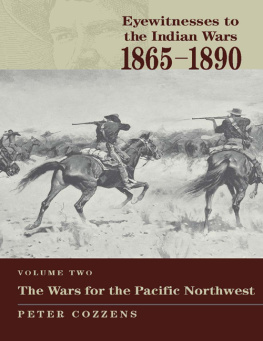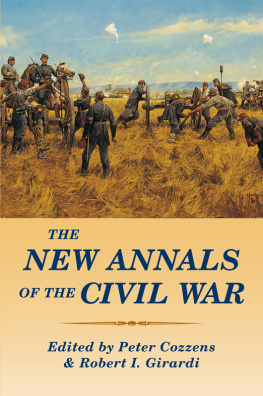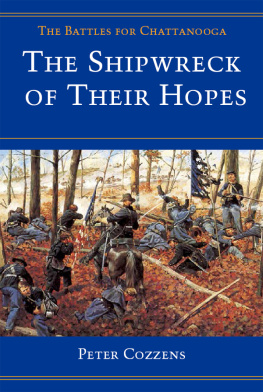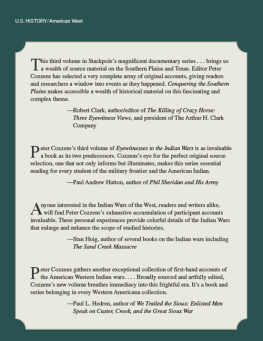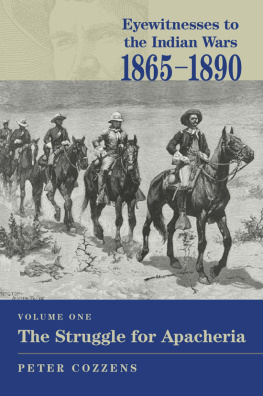MEN AND BRETHREN
by
JAMES GOULD COZZENS
LONGMANS, GREEN AND CO. LONDON - NEW YORK - TORONTO
longmans, green and co. ltd.
6 & 7 CLIFFORD STREET, LONDON, W.I
NICOL ROAD, BOMBAY, I 17 CHITTARANJAN AVENUE, CALCUTTA, 13 36A MOUNT ROAD, MADRAS, 2
longmans, green and co. inc.
55 FIFTH AVENUE, NEW YORK, 3
longmans, green and co.
215 VICTORIA STREET, TORONTO, I
First published March, 1936 Reprinted by Novographic Process 1948
PRINTED IN GREAT BRITAIN BY LOWE AND BRYDONE PRINTERS LIMITED, LONDON, N.W.10
CONTENTS
PART I
E RNEST let the telephone ring, peal on impatient, while he searched for a cigarette. He thrust it in the corner of his mouth and began a second search, for matches. Before he found them, he heard Lily take the call in the basement. Her piercing, aged, negroid voice chanted: "Saint Ambrose's Vicarage."
Ernest lit the cigarette, filled his lungs with smoke, and dropped on the edge of the low divan bed. "Mr. Cudlipp !" Lily's voice climbed shrilly, "Mr. Cudlipp!"
"All right!" he shouted. He plucked the instrument off the stand, lay back against the cushions, at the same time picking up the scraps of paper with pencilled messages which had been left on the table.
"Ernest Cudlipp speaking," he said. The cigarette in the corner of his lips nodded lightly to the words. From Lily's execrable writing he learned that Doctor Lamb had called. Doctor Lamb would stop by about half-past ten.
Ernest sighed. He could have guessed that from the glimpse of Mr. Hurst's car drawing up in refined splendour at the arches of the Parish House door just as Ernest left. Told all, Mr. Hurst had protested. Mr. Hurst would point out that the Bishop wouldn't like it. What would be the use? Holy Innocents' was not the sort of parish which relished a good rousing row. Mr. Cudlipp wasn't down at Saint Matthew's now. Let him attend to the work for which Holy Innocents' in its pious generosity had built and maintained the Chapel, and stop trying to
From the telephone a voice said: "Oh, Ernie! I've got to see you. I've really got to."
Ernest tossed the first note aside and held up the second. "I'm sorry," he said, perplexed by Lily's spelling Lord, it must be Lulu Merrick! She must have managed to get to town again. He inhaled smoke wearily. "I'm , sorry," he repeated, "this is a very bad connexion. I don't know who you are."
"Oh. It's Geraldine. Mrs. Binney."
"Of course. Now, what are you crying about, and why do you have to see me?"
"I can't tell you on the phone. May I come down?"
The third slip was in John's writing: Took five dollars out of your top drawer. J .
"No, Geraldine," he said. "I've a dinner engagement. If you want to see me, I'll come up there about half-past nine.'' The cigarette, consuming itself, shortened. He narrowed his right eye against the smoke streaming thinly past it, squinted with his left, reading on the last slip: Dear Vicar. Mrs. Hawley very low in mind, though doctor says not immediate danger. Would like to see you personally if possible. Johnston.
"Yes," he said into the phone. "I want to have a talk with you, too, Geraldine. I've been meaning to have one for some time."
"Oh. What about?"
"About what you've got to see me about, I think. Now, go lie down."
"Ernie, what's happened to him?"
"Nothing. He's perfectly all right. I haven't seen him to-day, but there was a note from him."
"What did he say oh. I'm sorry."
"Don't be. He said he was borrowing five dollars. He's perfectly all right. And so are you, Geraldine. Nine-thirty, or near it. God bless you." He dropped the telephone on the stand, stood up, picking away the hot fragment of cigarette from his lips, and lit another.
Although it was after half past six, and the sun was in merciful decline, no breeze stirred. From the tall old-fashioned windows of his bedroom Ernest Cudlipp could see the narrow, barren backyards divided monotonously by broken, disproportionately high, board fences. Through them, a rank diseased growth of ailanthus trees distributed itself, sickly fronds lifted high into the maze of clothes-lines strung from flat windows to lofty bare poles. Every pole was more or less off the perpendicular. A shadow smelling of hot stone, hot rubbish, burnt gasolene, filled the disreputable interior of the block. Invisible, an elevated train passed. Its low roar came leisurely in hollow crescendo. Then it went deliberately, dying away down town.
Ernest thumbed loose his clerical collar and detached the black linen stock, sailing them onto the top of the bureau stacked with books.
At the window again, Ernest saw young Munson, his organist, come out the back two stories under him, proceed down the yard and through the gate. Munson had his shirt sleeves rolled up on his long pallid forearms and carried several bound scores. From his work as a sales clerk in a haberdashery store he came directly, hot and winded, to his real love. The gate banged. Munson passed with brisk little foot-falls along the grimy flank of Saint Ambrose's Chapel, trotted down the cement entry way, and into the choir room.
Ernest took off his trousers, pulled his damp shirt over his head, dropping both on a chair. He was waiting, curious to hear what Munson began with. Munson had a developed taste in music, an admirable touch, and a minor, pleasant talent as a composer. It was perhaps a pity that he couldn't be paid enough to make selling neckties unnecessary; but, as likely as not, if he had more time, he would use it with less desperate devotion, do actually less work.
Ventilating sections of the ugly stained glass were tilted open behind the metal netting which covered the chapel windows, and the low hum of electric power at the pump arose audibly. In the organ loft Munson touched his banked keys. Irrelevant, deep, sustained and sad, a B minor chord sounded; steady, mechanically prolonged. There was silence. Then with a resolute whoop, sobering to patient purpose, the first sententious notes of Bishop Doane's hymn for the Missions surged over the backyards.
Ernest shook his head, recognizing Munson's rigid selection of duty before pleasure. On an evening as hot as this, duties of that lamentable sort must be almost beyond a musician's endurance. Mr. Johnston was to preach Sunday and the hymn was a favourite of his. Ernest shook his head again. He went in and turned on a shower.
"Fling out the banner," he found himself unwillingly echoing, "let it float, seaward and skyward, high and wide " But no, no! What senseless bombast! Angels did well to bend in anxious silence o'er the sign! There were no banners about poor Mr. Johnston. The nations, crowding to be born did Eskimos crowd to Mr. Johnston to be born? More likely, Mr. Johnston crowded to them. From them he took reality, all that could be called his life.
In the narrow loop of a parka hood unimaginable cold had calloused Mr. Johnston's forehead and cheeks. Of course he had worn a beard, Ernest realized suddenly; Mr. Johnston must have shaved it off because, no doubt largely white, it would make him look older than the hills. Mr. Johnston's eyes had been irreparably injured by snow glare. Ringed with the horn rims of his thick glasses, the lids were red, the magnified blue irises bleached. When he spoke his voice croaked weak and stiff. He often hesitated and stammered, as though his tongue, more familiar with was it fourteen? Indian and Eskimo dialects became uncertain and diffident, trying English. The sermon Sunday would necessarily be a horror, a genuine horror. He oughtn't to attempt it. Only, you could see, Mr. Johnston thought that if he didn't try, he would never be able to preach. He went at it with all his might; just as, eagerly, he made his round of calls with an awkward resolution easy to picture the confused greetings, the stiff halting conversations, the embarrassed, probably too-long-delayed leave-takings. Mr. Johnston was determined to master the routine work of a city priest, to be useful to the vicar, to justify his position.
Next page

